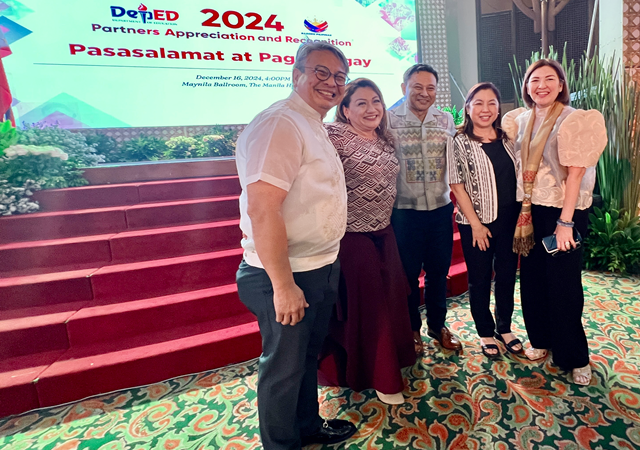Gov’t levels up four-door strategy vs new COVID-19 variant

By OPS
MANILA — With the looming threat posed by the Omicron variant of COVID-19, which the World Health Organization (WHO) classified as a Variant of Concern (VOC) as of November 26, 2021, the Philippine government has leveled up its four-door strategy to prevent the entry of the said VOC in the country.
Acting Presidential Spokesperson Secretary Karlo Nograles, in a press briefing on November 29, 2021, underscored that the four-door policy has been elevated as part of efforts to prevent the entry of the Omicron variant in the country and to prepare for the worst-case scenario.
Secretary Nograles explained that the travel restrictions that have been put in place for travelers who will be coming from countries where there are local cases of the Omicron variant make up Door 1, while Door 2 are the quarantine and testing protocols that are being implemented for international travelers arriving in the Philippines.
“Door Number 3 yung patuloy natin na PDITR, yung patuloy natin na surveillance, yung patuloy natin na pagde-detect, isolate, lahat po ‘yan nasa door number three natin. At yung Door Number 4, yung local at granular lockdowns kung kinakailangan gawin, kung may mga surge na nakikita sa mga LGUs, sa mga barangays, sa mga purok, agaran dapat ang mga mayors at governors na mag-implement ng localized at granular lockdowns,” Sec. Nograles said.
The Palace official said the national government has been closely monitoring developments with regard to the new COVID-19 variant. “Dahil itong Omicron variant ay na-designate bilang Variant of Concern, pinalakas at pinaiigting na natin ang local response laban sa COVID-19,” Nograles said.
These enhanced responses include strongly enjoining local government units (LGUs) to heighten their alert for increasing and clustering of cases and emphasizing the need for active case finding. It also includes immediate conduct of contact tracing and isolation of cases detected from case surveillance among the community, including domestic and international travelers; and to use RT-PCR testing in order to allow for whole-genome sequencing of collected samples.
Secretary Nograles, who is also concurrent spokesperson of the Inter-Agency Task Force for the Management of Emerging Infectious Diseases (IATF-EID), said Regional Epidemiology and Surveillance Units are expected to enhance and ensure more targeted selection of samples that will be submitted for genome sequencing.
The importance of genomic biosurveillance to monitor new variants was also emphasized by National Institutes of Health of the University of the Philippines Manila (UP-NIH) Executive Director Dr. Eva Maria Cutiongco Dela Paz. In the said press briefing, Dr. Dela Paz appealed for the submission of samples to be sequenced as this is the only way to know if the Omicron variant has already entered the country.
In the same briefing, UP NIH Institute of Molecular Biology and Biotechnology Director Dr. Edsel Salvaña said there is still no evidence that the Omicron variant is deadlier or causes more severe disease.
Dr. Salvaña assured the public, however, that while vaccine effectiveness studies are underway, the effectiveness of current vaccines won’t be zero, especially against severe disease, as vaccines will still offer protection.
“Huwag po tayong magpakampante, lalo na mayroon tayong Variant of Concern, ang Omicron, na sabi nga ng DOH, hindi ito tanong kung makakapasok ba siya sa bansa. It is really a matter of time,” Nograles remarked.
“During the holiday season, with restrictions easing, we know many of you plan to see loved ones and friends, so we appeal to everyone to please, please, please remain vigilant. Lalo po natin paigtingin ang Mask, Hugas, Iwas, at Bakuna. If you or members of your family have not been vaccinated, please, please po, magpabakuna na po kayo,” reminded Nograles. (OPS)







